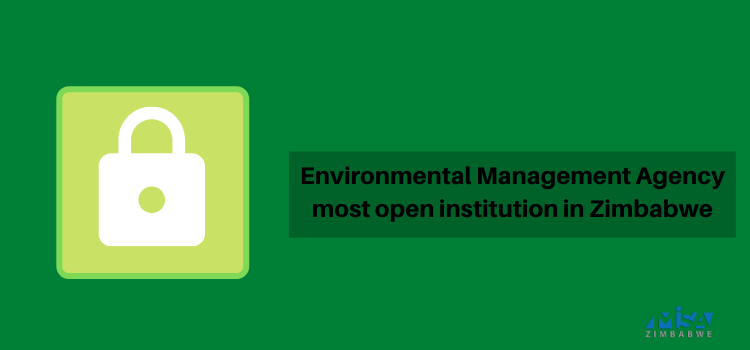The Environmental Management Agency (EMA) is the most open institution in Zimbabwe according to MISA Zimbabwe’s 2020 Transparency Assessment findings while Chitungwiza Municipality is the most secretive.
The Media Institute of Southern Africa (MISA Regional), has been conducting research and studies since 2009 to establish the difficulty with which citizens in the Southern Africa Development Community (SADC) can access public information.
The study is also part of commemorations for the International Day for Universal Access to Information which is marked every year on 28 September. It also based on the findings of assessments on whether public institutions proactively make relevant information available online in the form of websites or social media accounts.
It further evaluates to what degree information is made available to citizens upon request.
EMA was assessed as the most open institution after being assessed as being active on social media and maintaining a “partially” up to date website. Although the institution was unable to provide information that had been requested, they explained their reasons.
Chitungwiza Municipality did not respond to the requests for information. A senior official stated that they did not receive the request and recommended that the requests be resubmitted through email.
Other organisations that were surveyed are: Chipinge Rural District Council, Forestry Commission of Zimbabwe, Ministry of Health and Child Care, Ministry of Mines and Mining Development, Ministry of Primary and Secondary Education, Ministry of Women Affairs, Community, Small and Medium Enterprises Development, Mutare City Council and Zimbabwe School Examinations Council.
Regionally, similar studies were conducted in Botswana, Eswatini, Lesotho, Malawi, Mozambique, Namibia, Tanzania and Zambia.
Given the limited timeframe for the survey and the COVID-19 restrictions, it was not feasible to effectively test the new Freedom of Information Act and survey all organisations as originally planned.
However, it is trite to note that the culture and practice of acknowledging receipt of information requests, as opposed to providing the information sought, is still a challenge in some organisations. Targeted institutions do not always notify the requester when they receive the information request letter, but only acknowledge receipt upon physical follow-up visits to their offices.
Meanwhile, of the 10 organisations surveyed, the following had no functional websites (at the time the study was conducted), Chipinge Rural District Council, Ministry of Women Affairs, Community, Small and Medium Enterprises and Ministry of Mines and Mining Development.
Although six organisations acknowledged receipt of the information requests, only two responded well to the requests.
MISA Zimbabwe encourages organisations to effectively use online platforms to disseminate information to the public while the new law on access to information, the Freedom of Information Act, should be continuously evaluated to ensure it gives effect to Sections 61 and 62 of the Constitution that provide for freedom of expression, media freedom and citizens’ right to access to information.












